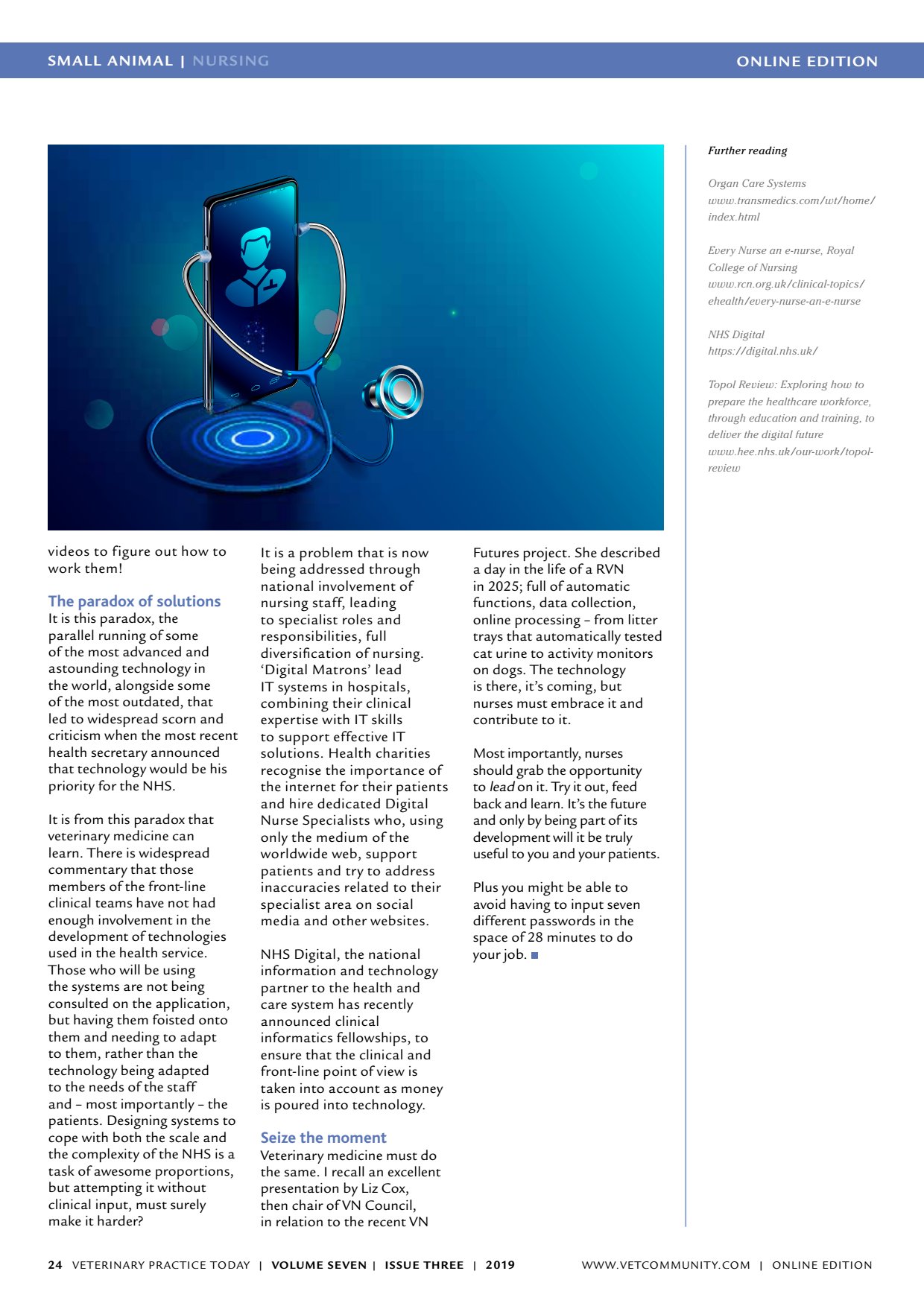paradox solutions Seize
ONLINE EDITIONSMALL ANIMAL | NURSING VETERINARY PRACTICE TODAY | VOLUME SEVEN | ISSUE THREE | 2019 24 Further reading Organ Care Systems www.transmedics.com/wt/home/ index.html Every Nurse an e-nurse, Royal College of Nursing www.rcn.org.uk/clinical-topics/ ehealth/every-nurse-an-e-nurse NHS Digital https://digital.nhs.uk/ Topol Review: Exploring how to prepare the healthcare workforce, through education and training, to deliver the digital future www.hee.nhs.uk/our-work/topol- review videos to f igure out how to work them! The paradox of solutions It is this paradox, the parallel running of some of the most advanced and astounding technology in the world, alongside some of the most outdated, that led to widespread scorn and criticism when the most recent health secretary announced that technology would be his priority for the NHS. It is from this paradox that veterinary medicine can learn. There is widespread commentary that those members of the front-line clinical teams have not had enough involvement in the development of technologies used in the health service. Those who will be using the systems are not being consulted on the application, but having them foisted onto them and needing to adapt to them, rather than the technology being adapted to the needs of the staff and most importantly the patients. Designing systems to cope with both the scale and the complexity of the NHS is a task of awesome proportions, but attempting it without clinical input, must surely make it harder? It is a problem that is now being addressed through national involvement of nursing staff, leading to specialist roles and responsibilities, full diversification of nursing. Digital Matrons lead IT systems in hospitals, combining their clinical expertise with IT skills to support effective IT solutions. Health charities recognise the importance of the internet for their patients and hire dedicated Digital Nurse Specialists who, using only the medium of the worldwide web, support patients and try to address inaccuracies related to their specialist area on social media and other websites. NHS Digital, the national information and technology partner to the health and care system has recently announced clinical informatics fellowships, to ensure that the clinical and front-line point of view is taken into account as money is poured into technology. Seize the moment Veterinary medicine must do the same. I recall an excellent presentation by Liz Cox, then chair of VN Council, in relation to the recent VN Futures project. She described a day in the life of a RVN in 2025; full of automatic functions, data collection, online processing from litter trays that automatically tested cat urine to activity monitors on dogs. The technology is there, its coming, but nurses must embrace it and contribute to it. Most importantly, nurses should grab the opportunity to lead on it. Try it out, feed back and learn. Its the future and only by being part of its development will it be truly useful to you and your patients. Plus you might be able to avoid having to input seven different passwords in the space of 28 minutes to do your job. WWW.VETCOMMUNIT Y.COM | ONLINE EDITION
